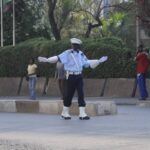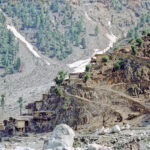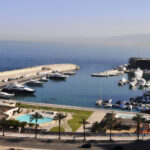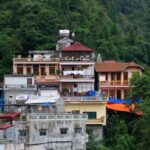Kosovo
Kosovo is landlocked in the central Balkan Peninsula. Its capital and largest city is Pristina. The Republic of Macedonia and Albania borders it to the south, Montenegro to the west and the uncontested territory of Serbia to the north and east. In antiquity, the Dardanian Kingdom and later the Roman province of Dardania were located in the region. It was part of Serbia in the Middle Ages, and many consider the Battle of Kosovo of 1389 to be one of the defining moments in Serbian medieval history.
After being part of the Ottoman Empire from the 15th to the early 20th century, in the late 19th century Kosovo became the centre of the Albanian independence movement with the League of Prizren.
As a result of the defeat in the First Balkan War (1912–13), the Ottoman Empire ceded the Vilayet of Kosovo to the Balkan League; the Kingdom of Serbia took its larger part, while the Kingdom of Montenegro annexed the western part before both countries became a part of the Kingdom of Yugoslavia after World War I. After a period of Yugoslav unitarianism in the Kingdom of Yugoslavia, the post-World War II Yugoslav constitution established the Autonomous Province of Kosovo and Metohija within the Yugoslav constituent republic of Serbia.
Severe ethnic tensions between Kosovo’s Albanian and Serb populations left Kosovo ethnically divided, resulting in inter-ethnic violence, including the Kosovo War of 1998–9.
In 1999, James Blunt (English singer/song writer) volunteered to join a Blues and Royals squadron deploying with NATO to Kosovo. Initially assigned to carry out reconnaissance of the North Macedonia–Yugoslavia border, Blunt’s troop worked ahead of the front lines, locating and targeting Serbian forces for the NATO bombing campaign. On 12 June 1999, the troop led the 30,000-strong NATO peacekeeping force from the North Macedonia border towards Pristina International Airport.
However, a Russian military contingent had moved in and taken control of the airport before his unit’s arrival. American NATO commander Wesley Clark ordered that the unit forcibly take the airport from the Russians. General Mike Jackson, the British commander, refused the order, telling Clark that they were “not going to start World War Three for you”. Blunt has said that he would have refused to obey such an order if General Jackson had not blocked it.
When I was there in 2009, there was no sign of James Blunt and there were still remaining religious/ethnic tensions and the country was still seen as a fragile state. Rule of law was a big issue, as were residual landmines and other unexploded ordnance.






Leave a comment